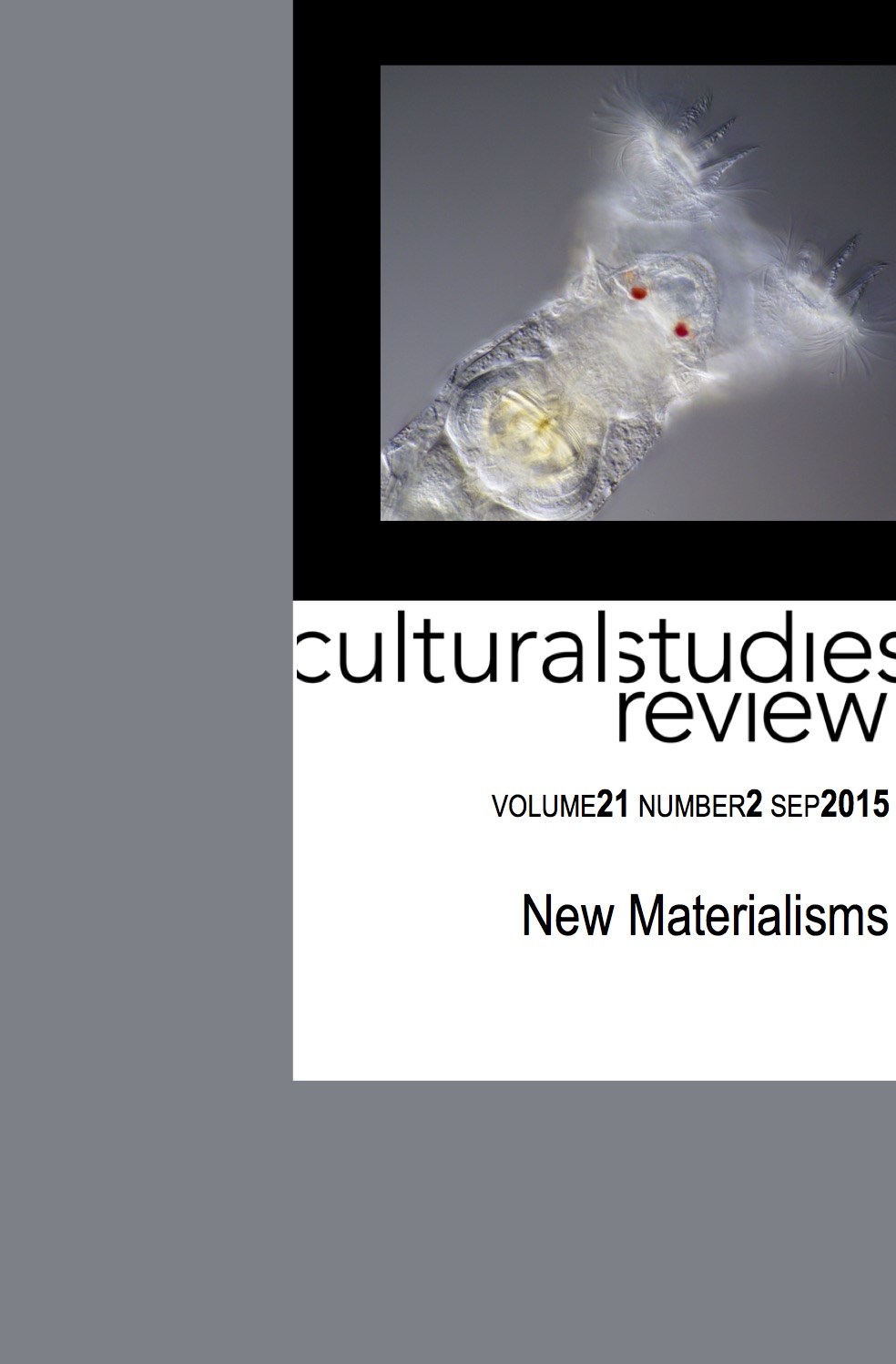Speculative Before the Turn: Reintroducing Feminist Materialist Performativity
Main Article Content
Abstract
This is a moment for new conversations and new synergies. While a wealth of contemporary speculative materialisms is currently circulating in academia, art and activism, in this article we focus upon a few ethico-political stakes in the different, loosely affiliated conceptions of ontologies of immanence. More specifically, we are concerned here with the very meaning of speculation itself after the many new headings of immanent ontologies, such as object-oriented ontology (OOO), speculative realism or the (feminist) new materialisms. Our concern is a feminist concern, as some of the immanent ontologies seem to actively connect with the varied feminist archive of speculative thought while others seem to actively disconnect from the very same archive. What does this imply for the feminist scholar who is in want of tools for navigating the contemporary landscape of ontologies of immanence? Here, we highlight some important overlapping as well as poignant clashes between various feminist materialist genealogies and OOO/speculative realism. In our discussion we underline the importance of situatedness and context, relationality and affinity—and the possibility for rewiring relations—amid a plethora of lively historiographies and emergent post-disciplinary movements and world-makings.
Article Details
Section
Authors who publish with this journal agree to the following terms:
a) Authors retain copyright and grant the journal right of first publication with the work simultaneously licensed undera Creative Commons Attribution License that allows others to share and adapt the work with an acknowledgement of the work's authorship and initial publication in this journal.
b) Authors are able to enter into separate, additional contractual arrangements for the non-exclusive distribution of the journal's published version of the work (e.g., post it to an institutional repository or publish it in a book), with an acknowledgement of its initial publication in this journal.
c) Authors are permitted and encouraged to post their work online (e.g., in institutional repositories or on their website) prior to and during the submission process, as it can lead to productive exchanges, as well as earlier and greater citation of published work (See The Open Access Citation Advantage Service). Where authors include such a work in an institutional repository or on their website (ie. a copy of a work which has been published in a UTS ePRESS journal, or a pre-print or post-print version of that work), we request that they include a statement that acknowledges the UTS ePRESS publication including the name of the journal, the volume number and a web-link to the journal item.
d) Authors should be aware that the Creative Commons Attribution (CC-BY) License permits readers to share (copy and redistribute the work in any medium or format) and adapt (remix, transform, and build upon the work) for any purpose, even commercially, provided they also give appropriate credit to the work, provide a link to the license, and indicate if changes were made. They may do these things in any reasonable manner, but not in any way that suggests you or your publisher endorses their use.
